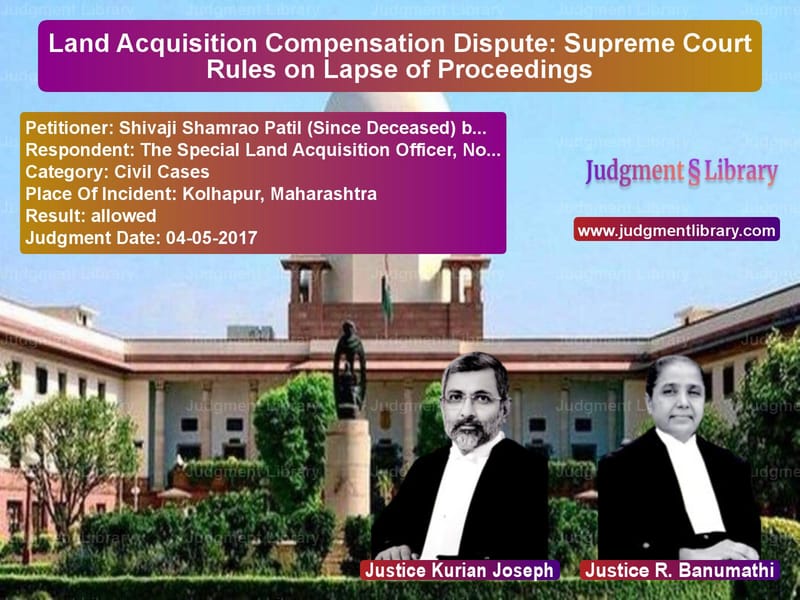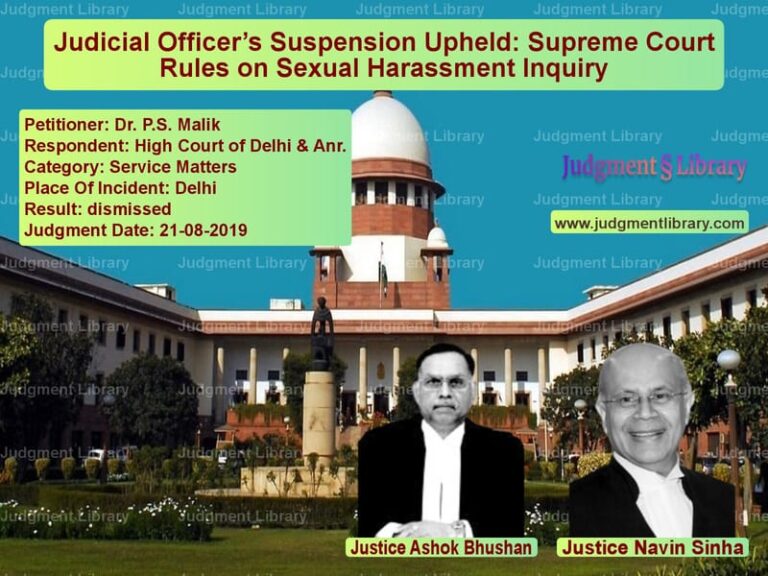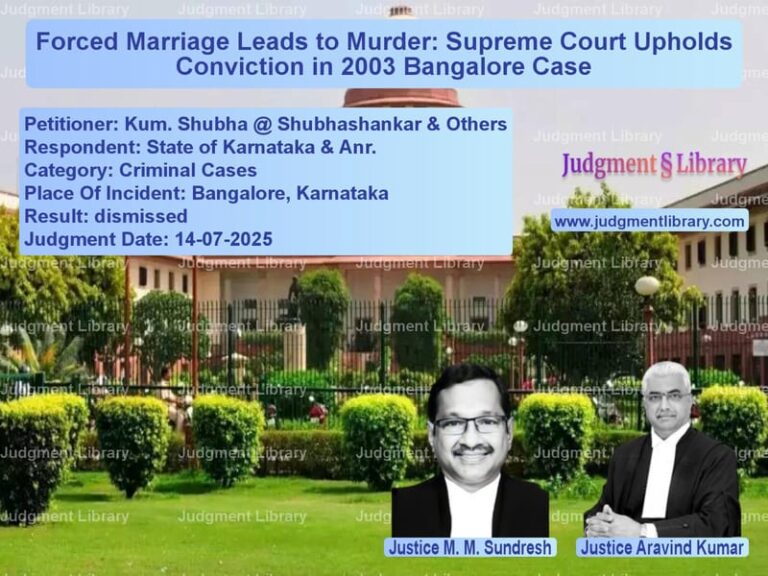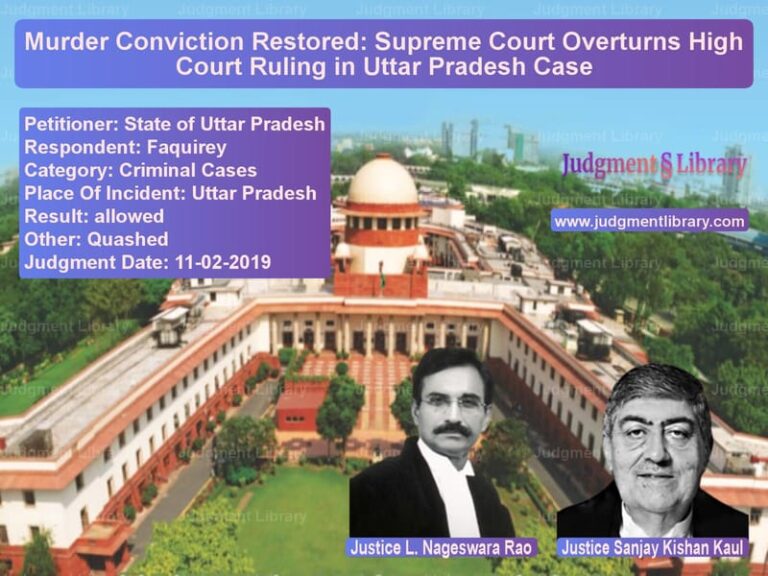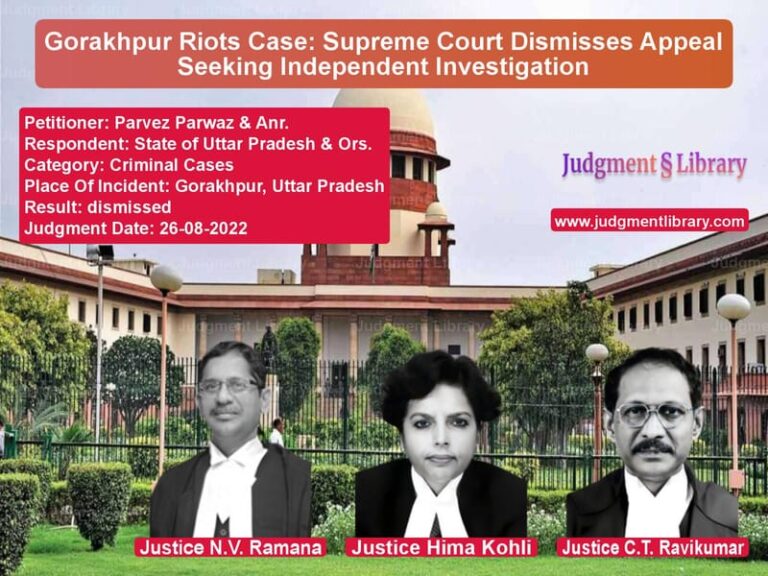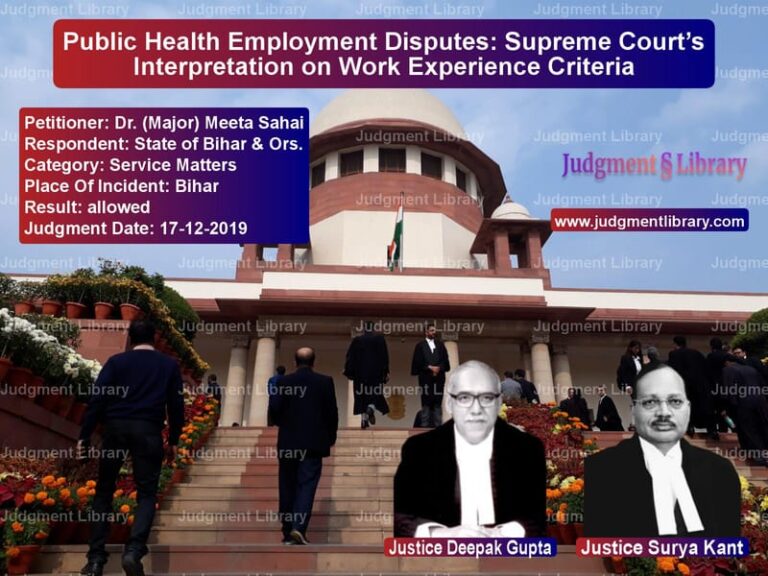Land Acquisition Compensation Dispute: Supreme Court Rules on Lapse of Proceedings
The Supreme Court of India recently ruled on a crucial land acquisition dispute in the case of Shivaji Shamrao Patil (Since Deceased) by L.R. Ranjana Shivaji Patil & Ors. vs. The Special Land Acquisition Officer, No. 14, Kolhapur, Maharashtra & Ors.. The case revolved around the issue of compensation for land acquisition and the applicability of the Right to Fair Compensation and Transparency in Land Acquisition, Rehabilitation and Resettlement Act, 2013.
The case dates back to an award issued on February 5, 1988. However, as of the time of the hearing, the compensation had not been paid to the landowners, a fact that played a crucial role in determining the outcome of the case.
Background of the Case
The petitioners contended that despite the passing of the land acquisition award over two decades ago, they had not received any compensation. The respondents, however, claimed that the compensation amount had been deposited in the Revenue Department but not disbursed to the landowners.
Key Legal Question
The primary legal question was whether the land acquisition proceedings had lapsed under Section 24(2) of the Right to Fair Compensation and Transparency in Land Acquisition, Rehabilitation and Resettlement Act, 2013, given that no compensation had been paid within the stipulated period.
Arguments Presented
Petitioners’ Arguments
The petitioners relied on the precedent set by the Supreme Court in Pune Municipal Corporation & Ors. vs. Harakchand Misirimal Solanki & Ors. [(2014) 3 SCC 183], which held that merely depositing the compensation in the treasury does not constitute payment to the landowners.
Petitioners’ key contention:
- The compensation had never been received by them despite the award being issued in 1988.
- The delay in payment clearly falls within the purview of Section 24(2), leading to the lapsing of proceedings.
Respondents’ Arguments
The respondents argued that the compensation was deposited in the Revenue Department and thus, should be considered as paid. However, they were unable to provide proof that the landowners had actually received the amount.
Supreme Court’s Judgment
The Supreme Court relied on its previous ruling in Pune Municipal Corporation and reaffirmed that unless the compensation is physically paid to the landowners or deposited in a court under Section 31 of the Land Acquisition Act, 1894, the acquisition proceedings would lapse.
The Court held:
“The specific instruction on the second aspect is that though the award is dated 05.02.1988, so far no compensation has been paid. If that is so, it squarely falls under the provision of lapse under Section 24(2) of the Right to Fair Compensation and Transparency in Land Acquisition, Rehabilitation and Resettlement Act, 2013.”
Accordingly, the Court ruled that the acquisition proceedings had lapsed. However, it granted the respondents one year to initiate fresh acquisition proceedings under the new law.
Conclusion
This judgment reinforces the principle that land acquisition authorities cannot merely deposit compensation in government accounts without ensuring actual payment to the affected landowners. The ruling provides clarity on the interpretation of Section 24(2) and strengthens landowners’ rights in acquisition cases.
Don’t miss out on the full details! Download the complete judgment in PDF format below and gain valuable insights instantly!
Download Judgment: Shivaji Shamrao Pati vs The Special Land Acq Supreme Court of India Judgment Dated 04-05-2017.pdf
Direct Downlaod Judgment: Direct downlaod this Judgment
See all petitions in Property Disputes
See all petitions in Compensation Disputes
See all petitions in Judgment by Kurian Joseph
See all petitions in Judgment by R. Banumathi
See all petitions in allowed
See all petitions in supreme court of India judgments May 2017
See all petitions in 2017 judgments
See all posts in Civil Cases Category
See all allowed petitions in Civil Cases Category
See all Dismissed petitions in Civil Cases Category
See all partially allowed petitions in Civil Cases Category

